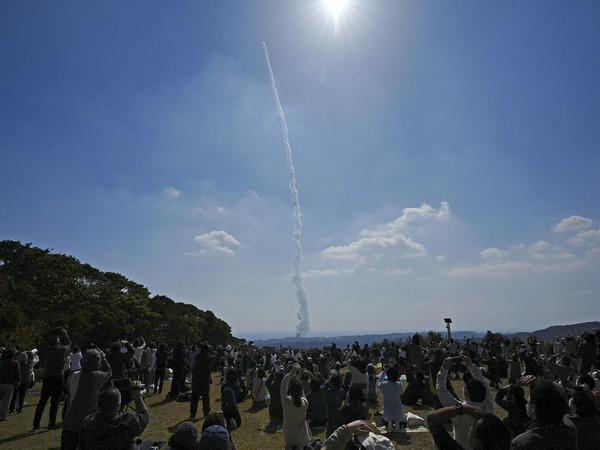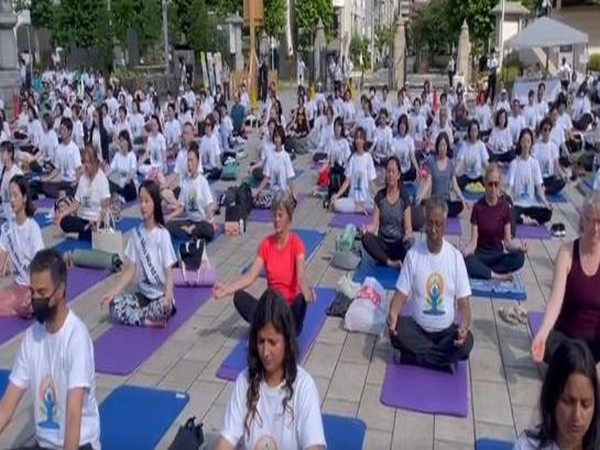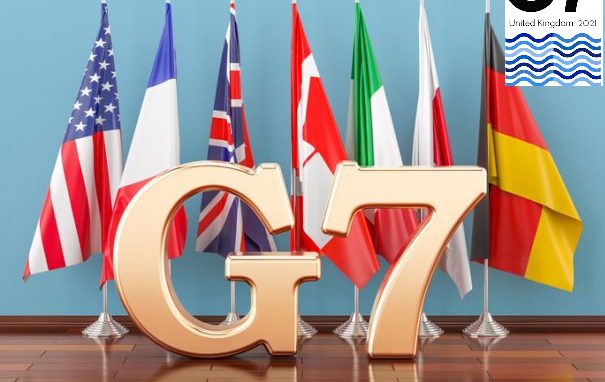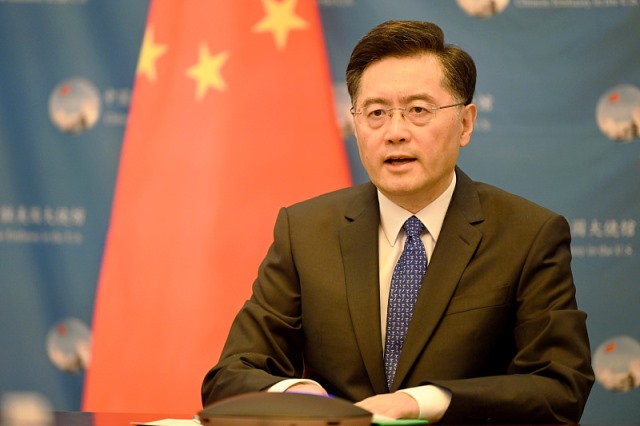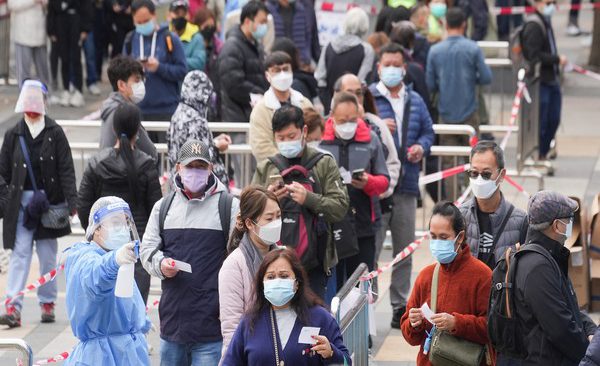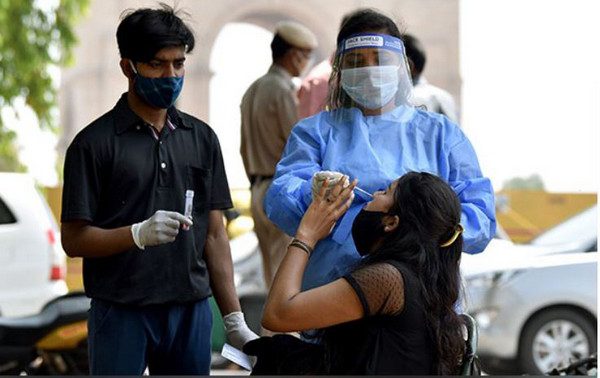The latest edition of the Malabar exercise is all set to commence in the Australian waters from August 11-21 that will see the participation of the United States, Japan, India and Australia.
Australia is also the host for this mega event which is being hosted there ‘for the first time’.
The ten-day exercise aims to deepen the interoperability between the key partners, Australia, India, Japan and the United States who are also members of the Quad or the Quadrilateral security dialogue.
The exercise is also designed to deepen the partnership for the Indo-Pacific, for shared aspiration, for a free, open and resilient Indo-Pacific and it will be followed immediately afterwards by AUSINDEX, the bi-annual naval exercise between India and Australia.
The Malabar series of exercises began as an annual bilateral naval exercise between India and the US in 1992. Japan joined the Naval Exercises in 2015. Malabar 2020 saw the participation of the Australian Navy also.
Malabar exercise is a navy-led exercise that will witness the participation of the navies from all four countries. Two major Australian ships HMAS Brisbane and HMAS Choules will perform an entry into the Sydney Harbour. The vessels and the aircraft will then proceed out to an exercise area off the coast of New South Wales.
The Indian Navy will be represented by its multi-role stealth frigate, INS Sahyadri and indigenous destroyer INS Kolkata.
A destroyer from the United States will be seen along with a major surface vessel from Japan. There’s a large designated and gazetted exercise area which is referred to as the East Australian exercise area which will witness this high-voltage exercise. Though Malabar has four countries as participants, there are no plans or discussions on its expansion at the moment.
During his India visit in March this year, Australian Prime Minister Anthony Albanese announced his country will host Exercise Malabar. Albanese was received onboard INS Vikrant by Chief of Naval Staff Admiral R Hari Kumar with a Guard of Honour. The Australian PM said his visit reflected his government’s commitment to place India at the heart of Australia’s approach to the Indo-Pacific and beyond.
Malabar exercise which represents one of the most complex naval activities that the four nations do together is also the capstone exercise that builds on a number of the bilateral excercises that the countries do with each other around the world.
China has been suspicious about the purpose of the Malabar exercise as it feels that the aim is to contain its influence in the Indo-Pacific region, but this exercise is not directed at any country and hence isn’t a China exercise per se since it is not a military or the defence arm of the Quad.
Notably, the Indo Pacific region has been subject to significantly enhanced strategic competition. And all partners of this exercise are determined to see greater strategic equilibrium and their purpose is to make sure that there is some concrete action beyond the words and talks.
Even as Beijing alleges that the Quad is aimed at it, the grouping has maintained that it is not intended ‘against China’.
Earlier in March this year, US Secretary of State Antony Blinken said that Quad is not a military grouping adding it is now engaged in working together to help countries to deal with humanitarian situations in natural disasters.
“We are working on things that are really critical,” Blinken said at a panel discussion of the Quad Foreign Ministers themed ‘The Quad Squad: Power and Purpose of the Polygon’ in the national capital in March this year.
Australia and India have seen an exponential increase in defence cooperation. Exercising has been both more frequent, and complex and that is an aspiration that both countries are determined to see continue. Since, the United States and Japan will send only one warship each, its important to understand in which context Malabar has been scheduled this year, and the size of exercises and ships numbers shouldn’t equate with complexity the important thing here to understand is, what those ships and what those men and women inside those ships and aircraft are doing together.
Australian PM during his March visit earlier also noted that Last year, India and Australia conducted more exercises, operations and dialogues than ever before.
The strategic importance of the India-Australia partnership is increasing and there has never been a point in both countries’ histories where they have had such a strong strategic alignment, Albanese said. There has never been a busier or more productive time in the bilateral defence and security partnership and 2023 will be “busier than ever” in this area, he added.
During PM Modi’s visit to Australia in November 2014, both sides decided to extend defence cooperation to cover research, development and industry engagement and agreed to hold regular meetings at the level of the Defence Minister, conduct regular maritime exercises and convene regular service-to-service talks.
The fourth edition of AUSINDEX was held during between September 7 and 10, 2021 in Australia at Off Darwin. Navies of India, Australia, Japan and the USA also participated in Phase I of Exercise Malabar 2021, from August 26 to 29, 2021 off Guam and in Phase II in the Bay of Bengal from October 12 to 15, 2021.
India also participated as an Observer in Exercise Talisman Sabre 2021 in July 2021. India-Australia Joint Military Exercise AUSTRAHIND 2022 was held in Rajasthan from November 28-December 11, 2022 between Indian Army and the Australian Army, the first exercise in the series of AUSTRA HIND with the participation of all arms and services contingent from both armies.
Australia and India have also built links between their defence forces through regular personnel and training exchanges, such as short specialist courses and longer-term higher education positions. Every year, Australia sends officers to attend India’s premiere military educational institutions.
India also sends four officers to study in Australia annually. Inaugurated in 2023, General Rawat India – Australia Young Defence Officer Exchange Program offers the opportunity each year for fifteen young officers from across Army, Navy, and Air Force, to learn more about each other’s training, operational environments and culture.
In 2023, 15 young Australian Defence Officers travelled to India and in 2024 it is expected that 15 young Indian Armed Forces officers will travel to Australia, to study Australian Defence capability and culture. (ANI)
Read More: http://13.232.95.176/


